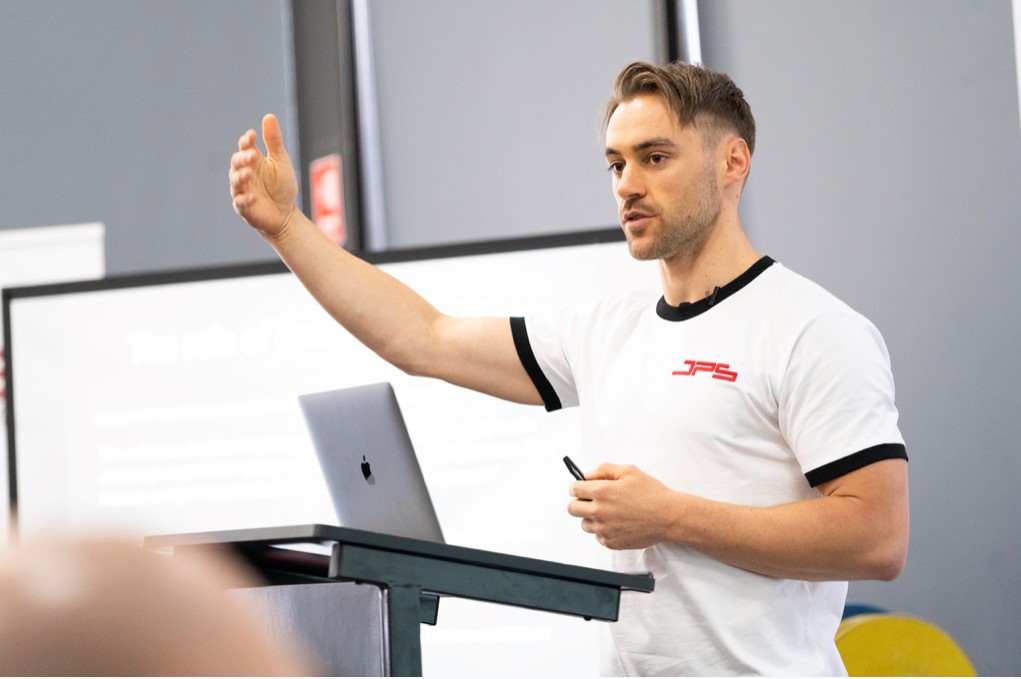Alumni Stories
UC's 30th Anniversary: tackling health and lifestyle issues through health literacy
This year, UC is celebrating our 30th anniversary as a university.
We've achieved a lot over the past 30 years – risen in world rankings, conducted breakthrough research, opened world-class learning, teaching and sporting facilities, and expanded our academic offerings.
All this has been possible because of the amazing people who make up the UC community.
The COVID-19 pandemic has catapulted many underlying health and lifestyle issues to the forefront, highlighting the fact that there exists a poor understanding of personal health management in much of the broader community.
University of Canberra alumnus Lyndon Purcell, who graduated from UC with a Masters degree in High Performance Sport in 2019 believes that this can be addressed by improving health literacy – the skills and knowledge to get and understand the relevant information, then use it to make informed decisions and take action for our own health and healthcare.
Lyndon’s ambition is therefore to better educate the general public about their health, providing people with a greater understanding of health concerns and diagnoses, and equipping them with this important health management knowhow.
Historically, Lyndon says, medical practitioners have generally been the only source of reliable information when it comes to health and health-related matters.
“Doctors are viewed as the founts of all health knowledge, but they should be educators as well. This would result in more favourable outcomes for their patients, particularly if they were given the tools and information to handle their health better,” he says.
Lyndon works at JPS Health and Fitness in Melbourne as the Education Manager, and has seen first-hand the impact of COVID-19 on people’s health and wellbeing.
“The pandemic has exemplified the fact that we haven’t been doing things as well as we should have,” he says. “COVID-19 has been our wake up call.”
“Many people have been putting all their effort into their careers – at the expense of their health – but we miss the obvious that we function better if our health is good.
“Health is one of those things that you need to be pre-emptive about.”
And there is nothing like a pandemic to bring health-related conspiracy theories to the fore. Lyndon has some firm views on these.
“If the health literacy average was higher, we wouldn’t have the number of conspiracy theories that currently exist in the community,” he says. More people would have the skills to navigate the nonsense and conspiracy theories with no substance backing them wouldn’t be able to grow and proliferate.

As Lyndon sees it, part of the issue is the language used. The vocabulary associated with health is often harder to comprehend, not part of our everyday lexicon. This is an area of interest that Lyndon wants to tackle in a very applied way, driven by the need to be practical.
Growing up on a farm in country Victoria, Lyndon enjoyed the childhood typical of many country kids – fresh air, open spaces and playing every sport on offer.
It provided him with a concrete sense of how exercise and physical literacy positively affect his health and wellbeing.
“Sport played a major role in my life growing up, and the benefits were definitely more than short-term,” he says. “It was probably something that clicked when I was 16 or 17, and I realised that there were better ways to achieve health outcomes.”
Lyndon decided to pursue his passion for sport and exercise by first completing his Bachelor of Exercise and Sports Science degree at RMIT, and then completed his two-year online Master of High Performance degree at UC.
The online Masters course was particularly workable for Lyndon, as he was able to study while continuing in his health and fitness education role in Melbourne.
“The outline of the course was the draw card,” he says. “The fact that it was online was a further positive for me. It was my preferred way to study, as the course material was suited to online study outcomes.”
Immersed in the fitness and health industry, Lyndon says he can see a number of gaps that need to be filled.
“As mentioned, it’s obvious that we need to convey health messages in simple understandable language, and in a way that makes sense to the general public."
“Also, there needs to be greater emphasis on lifestyle, with a focus on preventive measures.”
As an educator, Lyndon is working towards putting this into practice and has set his goals high. “I would love to raise the standard of health literacy worldwide,” he says.
For the time being though, Lyndon is focused on Melbourne and making a difference in his own back yard – armed with the belief that people will be looking to take greater ownership of their health in the wake of the Victoria lockdown and the impact of the pandemic on their lives.
Words by Tim Gavel. Photos supplied.
In this special 30th anniversary series, UnCover is sharing the inspiring stories of UC staff, students, and alumni.
Know someone with a great story? Send their details to stories@canberra.edu.au.